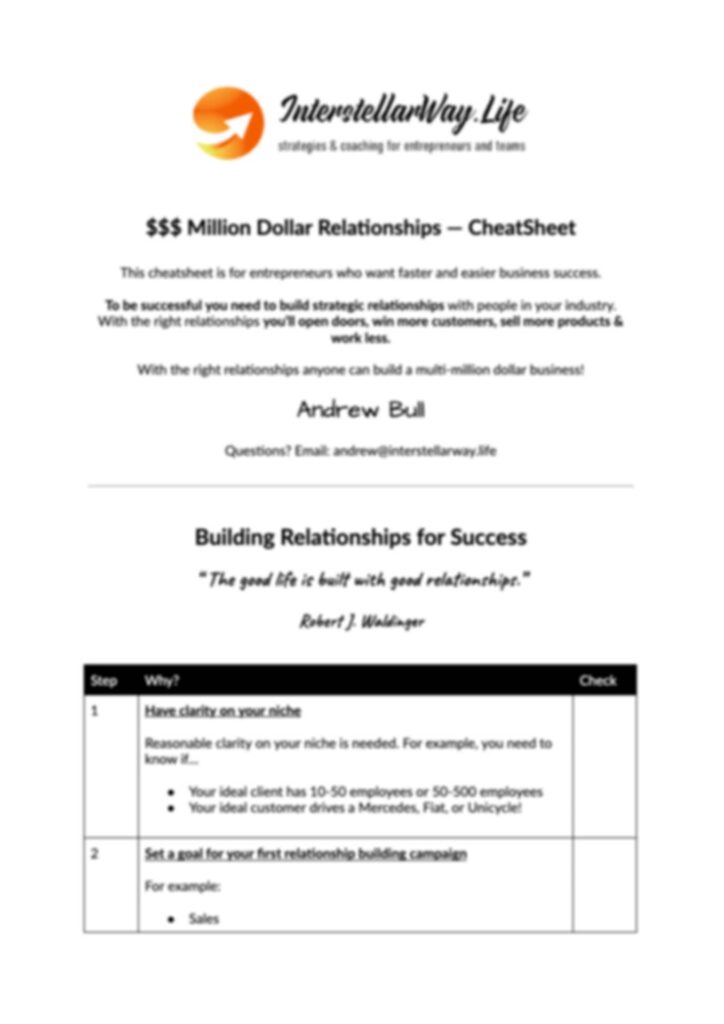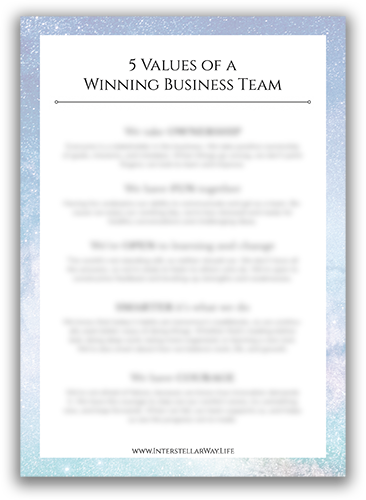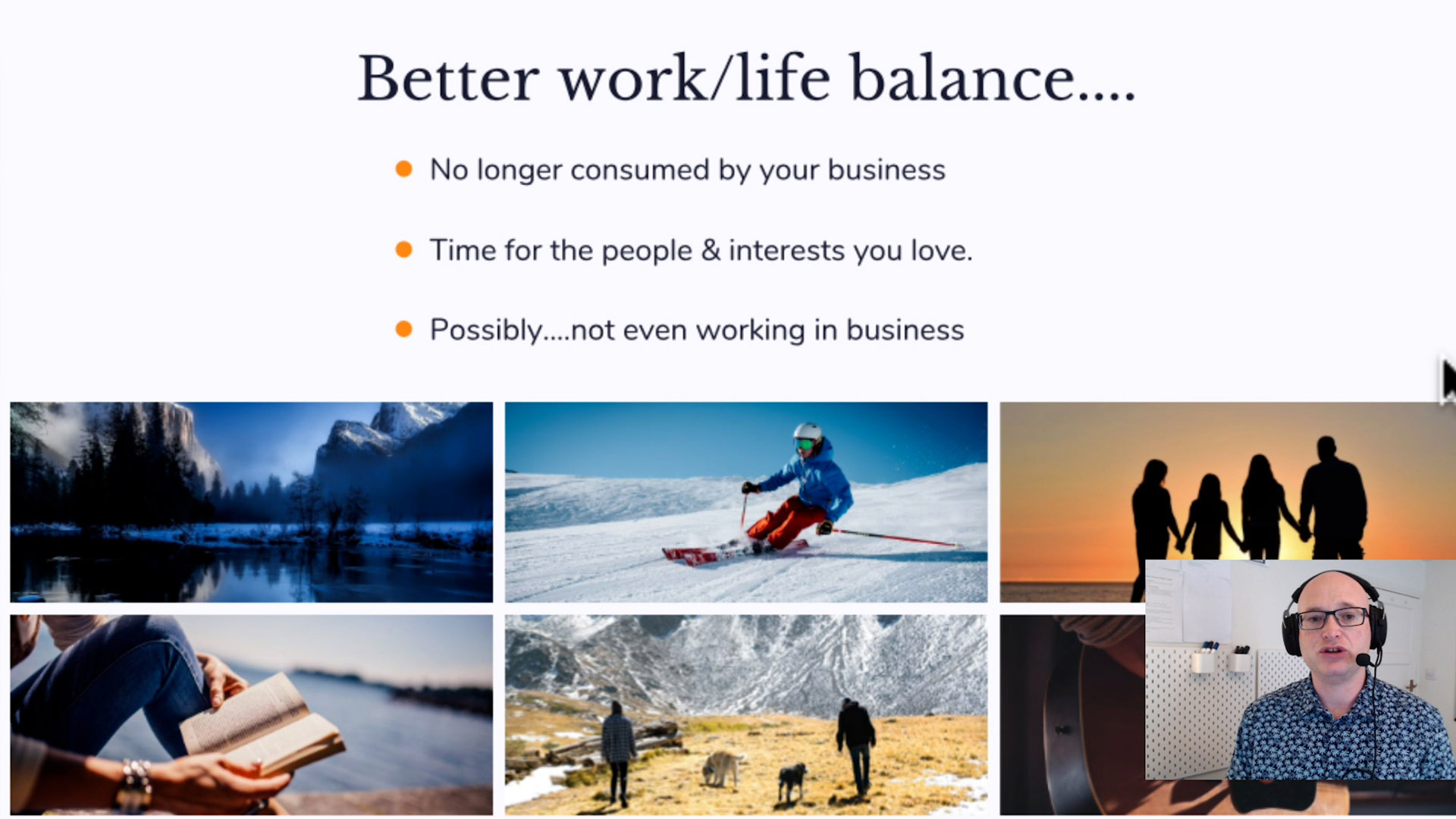Interstellar Business Show
Podcast for Technology CEOs and their teams.
It's time to grow your mind, elevate performance, and own your future 🚀

Interstellar Business Show
Episode: 0025
Finance Revolution: Glenn Hopper on power of finance in data age
Featuring....

Episode Introduction
Your financial leaders can kick-start a powerful data-driven revolution inside your business…
In a time where tech companies are struggling to keep up with their workflows and processes, it’s surprising that one of the most important roles in a company (CFO) is not being utilised as much as they could be.
In this podcast we explore how CFOs and other leaders can help companies use data and other streamlining processes to inform decisions and improve business performance.
Listen and learn:
- Why you need to become a data-driven business
- Why finance leaders are in perfect position to drive that revolution
- Easy first steps you can take to streamline and automate your business processes
This week’s guest is Glenn Hopper, a CFO and author of Deep Finance: Corporate Finance in the Information Age
Glenn’s book is available on Amazon.com and Amazon.co.uk
Episode notes & resources
Love this podcast episode? Please leave a review here
Listen to more episodes here: Interstellar.Show
More about Glenn Hopper, CFO and author of Deep Finance: Corporate Finance in the Information Age
https://www.linkedin.com/in/gbhopperiii/
Get Andrew’s free Resources for Tech companies with teams → https://bit.ly/2Ygyoij
Join Andrew’s Interstellar Community → https://interstellarway.life/sign-up-for-newsletter/
Transcript
Please note, this transcription is autogenerated, so there may be errors.
[00:00:00] Andrew Bull: Oh, no, it’s the finance person that probably going to tell me how we’re over budget this quarter. The invoices haven’t been paid by our clients. Or how our suppliers are chasing us for payment. Are these the kind of thoughts you have about finance? Well on today’s show, we’re shaking things up and asking you to think a bit differently about the role of finance within your business. Today. I’m talking with the chief financial officer and author.
Who believes financial leaders can kickstart a revolution within your business? Uh, data revolution that will drag your business, kicking and screaming out of the dark ages and help transform it into the modern data-driven business that it must become. In this episode we share. Y you need to become a data-driven business. Why finance leaders are in a perfect position to drive that revolution within your company. And we’re going to give you easy first steps that you can take to streamline and automate your business processes.
Now, before we get started and meet our guests, please make sure you subscribe and follow us wherever you’re listening today. So you never miss an episode again.
MEET THE GUEST
[00:01:25] Andrew Bull: Welcome Glenn.
Really pleased to have you with us today.
[00:01:58] Glenn Hopper: Hi, Andrew. Thanks for having me glad to be here.
[00:02:00] Andrew Bull: So I don’t make a mess of you’ll name and your title. Can you please introduce yourself to our listeners?
[00:02:06] Glenn Hopper: Sure. My name is Glen hopper and I am a finance guy by trade. And most recently I’m an author and I’ve written a book called deep finance, corporate finance, and the information age,
[00:02:18] Andrew Bull: And is that available now?
[00:02:20] Glenn Hopper: It is the E version came out a couple of months ago and the print version just came out within the past couple of weeks and it’s available on Amazon and, whatever books sell or you go to Amazon Barnes and noble target, you name it.
[00:02:32] Andrew Bull: Awesome. We’ll give people a few more details about that later in the show. Let’s move on swiftly to our first section of the show, which is called
HAVE COURAGE
[00:02:42] Andrew Bull: In this section of the show, our guest shares some secrets and stories about themselves that help us learn a little bit about them and maybe reveal what’s taken them on this path.
Glenn, what secret don’t people know about you?
[00:03:07] Glenn Hopper: I’m dating myself a bit here, but it’s been about 20 years now that I’ve been on this path where I’m trying to automate finance for myself and for others. And where it started was when I was really young in the business world. to advancement was let me just keep taking as much work as people will give me. And I’ll just, I’ll take all the jobs that no one wants to do, and I’ll just keep loading up my plate and I’ll just, I’ll outwork everyone. And I’ll just take on as much as I can, which is. The good strategy, until it’s not, it’s hard to know where that breaking point is when you’ve taken on too much work.
And I’d been in my first finance role for several months a year. And finally, I’d taken on. Work that I inherited an employee, which was great because I needed the help. I didn’t get to pick the employee and he was Yeah. He’d been in the business world for a long time and had a way of doing things that was, and this was in the early two thousands, but this guy was still using a paper ledger to track everything he did.
And so he had a computer on his desk that honestly, I don’t know if he even turned it on and he had just piles and piles of paper. And he was my guy that he was the accounts payable clerk and At this business I was in at the time we had about a $17 million a year budget, and we had pretty big orders.
They were each order. It was for customer premise equipment. Each order would be over a million dollars. And we were managing the budget pretty tightly. We were a startup company, not profitable had to meet quarterly with the investors and where everything was being watched very closely.
We had some invoices come in and two invoices from the same vendor on the same day, roughly the same amount. There were about $1.5 million. Each my employee thought they were the same invoice, entered them. One time we get to the end of the year. We’ve suddenly overshot our budget where, and all kinds of trouble the CEO is, I think was ready to physically harm me after all this.
And. It just, it was a nightmare that really, I thought I’ve just ended my career. I, I don’t know what I’m gonna do. I guess I’m going to go teach high school or something and we ended up surviving. But after I came out of that, I thought this, I can’t put myself in this situation again.
So then I really started on this path of finance automation and doing what I could to to make things, make sure that never happened to me again.
[00:05:40] Andrew Bull: I suppose one of the challenges or reasons that this comes to the fore is that we’re so busy sometimes like you, or maybe the other guy that was working under you, you’re so busy spinning all of those plates and if you’re spinning them manually maybe you can do it. You can work at that just about level for a while, but then what happens on that extra day when you’ve got to run and pick up the kids from school, or you’ve got to get the shopping in or something else unexpected happens at work.
And all of a sudden you’ve taken your eye off a couple of those spinning plates, and that’s when the invoice doesn’t get sent or paid or whatever.
[00:06:16] Glenn Hopper: Yeah, exactly. There’s limits to what you can keep. How many plates you can spin at a time. So that’s when you start looking for, okay, this is what I can do organically. What can I do with the help of engineering?
[00:06:30] Andrew Bull: So this a pain point or painful story, lit a fire in side of you to change this situation for the better, not only for yourself, but also for other people. Is that right?
[00:06:44] Glenn Hopper: It really did at first it was, you know, I always say. Necessity is the mother of invention. So getting into a situation like that, it was necessary that if I was going to stay there, I had to find a way to fix this. And it was you know, I immediately came up with a way that we could without getting into the specific details of the invoice in particular, basically it was, we need systems to be integrated and talking to each other from the beginning, from the time.
That, you know, there’s no manual recording of anything. It’s goes into a system one time and is tracked all the way through. And it made a significant difference, then it became, okay, we’ve automated this, how now can we provide additional value by the fact that we’ve now started collecting this data up front?
And we have it in a database where we can query on it and use it to drive other decisions and build budgets and the other areas that you can build on in finance.
[00:07:36] Andrew Bull: That’s very cool. In the pre-show questionnaire that I sent out to Glen, which actually I send that to all the guests – which is my smart way of trying to optimize my workflows and my data collection – Glenn actually spoke about startup to scale up and that’s the journey that you help businesses go on through collecting data the right way and automating it. Is that right?
[00:08:00] Glenn Hopper: Yeah. And here’s the way I think of that, in startup mode, you don’t have processes in place. You have a great idea, a great product. You want to get it out there. You’re just trying to figure out what you can do to get their product to people. And everybody’s doing things their own way. And it’s a cowboy mentality of. We’re just doing everything we can to give the best service or provide the best product for the customers. And if you don’t have that many customers and you know, you treat all of them, like it’s a white glove concierge service, then that’s great if that’s the nature of the business, but that’s not scalable.
That’s your only is scalable is as how many people you have. So when you finally get down what your processes are going to be in. you’re going to deliver to the customers. Then it’s time to start documenting your processes and finding ways to automate them and then find so that if you do in the startup world, start to really grow And scale your business, that you’re not having to hire too quickly or try to bring on other people to train them that you can automate as much as possible.
[00:09:05] Andrew Bull: And what’s the ideal point to get to then, to be? What kind of organization, how would you describe the perfect organization when it comes to data?
[00:09:15] Glenn Hopper: We should move to where companies are. Data-driven organizations, meaning that they’re using the data to make decisions rather than just operating on a hunch.
[00:09:26] Andrew Bull: Okay. And I love that and I really want to get more into this, but let’s move forward into the next section of the show. We’re actually going to dig even further into this idea.
BIG IDEA
[00:09:38] Andrew Bull: In this section of the show, our guest will share a big idea that will help you, the business leader, elevate performance, optimize your business, or just make your working day a whole lot easier. And sometimes our guests even shares an idea which will help you with all three of those things.
Glenn, what’s the big idea that you want to share with our leaders?
[00:10:09] Glenn Hopper: So the big idea is the importance of optimizing productivity systems and operations.
Accounting has come a long way since the days of the abacus and punch cards. And, you know, even the first cloud accounting software that we had years ago, and you have to be aware of how the industry is changing in order to optimize your business. And if you’re not aware, if you’re just stuck in a rut of doing the same thing that you’ve done day after day, year after year, you’re going to get left behind by the more innovative businesses. So what I’m trying to do is you have a group of subject matter experts who know a lot about finance, but maybe aren’t keeping up with.
Areas outside of finance. So I’m trying to create a marriage between finance And technology, where finance people are not scared to dive in and learn more about what an API is, what database queries are, what data lakes are and show them the value that they can bring to their position and to their companies by understanding the technology.
[00:11:18] Andrew Bull: And I love this approach as well, because from my perspective, often we think about automation being something to do with marketing or sales, right? It’s all about growth and customer. So it’s normally about those teams, which are driving automation inside a business, but they might not be thinking necessarily too strategically about the whole optimization and flow of.
The business and they might be jumping from strategy to strategy, to campaign. So maybe none of that approach is very sticky or very strong or very meshed into the core of the business. Whereas I can see how actually. If he got the finance guys on board who are very much interested in the structure and longstanding and long success of the business, actually it could make a whole lot of sense for getting those people involved with that.
[00:12:15] Glenn Hopper: This is the problem I’ve run into for years. Development resources. It’s very easy to get them assigned to customer facing front end. And that’s, you know, that’s why the business is there is because you’re creating products and selling products. So of course, that’s going to take priority over anything else.
So if you have a development team they’re focused on product and what the customer is seeing, which is great, but if you can’t ever expand and evolve the Back office operations. Then you could have the greatest product in the world, but it’s difficult to provision it and to track it and to know anything about it.
So understanding that the back office is important. And what I try to get across in the book is finance is always thought of as a cost center. It’s just, it’s a necessary evil to a lot of people. They don’t want to think about it.
Historically finance has been you know, their report card guys, after the accounting periods over, they tell you how you did, and they do a little bit of financial planning and and budgeting for the next year. But they’re really thought of as not contributing anything strategically to the business, but just telling you how the business has done. So if you can learn to harness this data though, and if you can increase automation you can do things like you have people who are just doing data entry and that’s mindless work, but it’s necessary. But if you can automate that, if you can. OCR software and robotic process automation and the person who was doing that.
mindless work of data entry, then their time is freed up.
Then they can do start doing more mindful work and they can start actually analyzing the numbers and creating value to the business. And I mentioned churn before. It could be, you know, trying to predict when customers are going to turn or helping to determine the true lifetime value of a customer and start providing things that actually add value to the business and take over.
From the notion that finance is just a cost center and it’s maybe not as much as a sales and marketing, but it does start to contribute to the bottom line when you have the data and you’re driving better decisions and you have the resources that aren’t tied up doing this mindless work that are able to contribute to the business.
[00:14:31] Andrew Bull: I suppose a lot of automation technology out there is not necessarily very focused right now on accounting software. I’m making, this is a big assumption of. But I’m just thinking from my experience with Zapier Integro mat and some other tools like that, they are designed to play very well with social media marketing tools, these kinds of things.
But when it comes to how, you know, the fact that a customer has paid a hundred invoices within the last three months and automating some kind of knowledge to come from that, which then affects. Something else in your business. It’s off the top of my mind. I don’t know any standard workflows that exist for that.
[00:15:19] Glenn Hopper: Yeah. So Zapier, you mentioned they do have some finance apps and there are a lot of. Off the shelf software systems that do things from expense management to robotic process automation of enter your invoice into this system and we’ll scan it and figure it out. But they’re not well integrated yet.
So this can be a challenge. And even if. Invested in, went with a full enterprise resource planning, huge like NetSuite kind of software, being able to have this automation integrated with it. This is when I talked earlier about getting developer resources applied. in order to integrate these off the shelf software platforms with your accounting software, it requires at least someone who knows how to work APIs and gather data.
There’s levels of what you can do to the automation. In the book. I talk about how you battle your way through each level of automation. But I think first getting these APIs and getting the data out of the systems that you can report on, it takes more tech than maybe the standard person off the street does.
In the book I talked, you know, I give some primers on here’s your basic technology, but I don’t expect a. Chief financial officer to learn how to be a developer or a database administrator and write these queries. So there is some assumption in there that.
you have to have resources either from the it group, or be able to hire your own data science person to get it.
And then we talk about how you use the data. A lot of it is requires connectivity that doesn’t just come off the shelf. So you’ll have all these disparate systems and you’ve got to figure out how to feed it into a data lake. And to your earlier point about your company probably already has data lakes.
They’re just being used by marketing and sales and operations groups, and it hasn’t come to the back office yet. So it, you know, depending on the size of the country, It’s not going to be a crazy ask to talk to it about getting this data it’s yeah, getting the systems in place, pulling the data out of them and integrating with the other systems is a big challenge.
[00:17:22] Andrew Bull: So what’s the role of the leader in this? What should they be doing? They’ve got to bring the right team members in, but how can they be a positive force in this whole process and journey?
[00:17:34] Glenn Hopper: Yeah, great question. And There’s actually, it’s a thread that runs through the whole book. This is interesting as a finance guy to say, but when you’re trying to convince the full management team or the board, or whoever is making the decision in your business that you need to do this digital transformation, it’s very hard to do it with an ROI as a finance guy, you went in ROI and everything.
You asked marketing. If we do this ad spend what’s the ROI on it, and it’s just as it’s, it can be difficult to find that. It can also be difficult to talk about you know, you could say, oh, if we automate this process, we can get rid of some headcount, but that’s, I don’t really preach about getting rid of head count.
I talk about more meaningful head count. So as the leader of this, you need to be. cheerleader and part organizer. And I talk about an approach where you get allies from all the different departments and you have them understand what the benefit to them is, whether they’re in operations and you’re talking about how long it takes to provision your product and how great it would be if they had data on each step of the way.
So I talk about building the team that way. And then I also. Explain how it makes sense for finance to be the chief data officer, because you’re already finance. A lot of times manages KPIs for the business. You’re already doing your reporting. You’re already using. That your analysts are already looking for correlations between numbers.
So whether they’re having an official data science education, they’re already to some extent doing some data science. As a leader, it’s gathering the right resources, making the sales pitch and being a cheerleader to motivate others, to move in your direction.
[00:19:16] Andrew Bull: All right. That’s a great answer. And that’s an interesting thought about how KPIs are something that the finance leaders are looking at already. And it made me think about a company like Twitter, which historically has not been in. All the time, but they’ve got millions or billions of people signed up for Twitter and a huge amount of their inventory, or their stock or whatever you want to see on their books is they users.
So in some ways that metric would traditionally be the metric of the marketing department, perhaps, but actually. That’s hugely tied into the financial base of the business. So maybe there is a reason for these other kinds of metrics to be in the hands of the accounting team as well.
[00:20:07] Glenn Hopper: users is a great example because there’s unlike to your point on Twitter. You know, they haven’t always been profitable, but think about for startups in particular, anyone who’s doing a model that is based on users. If you’re trying to get evaluation And you don’t in your pre-revenue or you’re not making money or there at least pre profit, then you want to value the business on your users.
So in that example, it would make sense that the finance department could say this is how many users we have. This is the value of each. And then, so you start doing formulas about, okay, each user represents this many hours per day or per month online. If you have an advertising model, you know, you say we have this information of the user.
This is how valuable it is to an advertiser. You know, we know the demographics and we have the graph social networks or whatever it is. So I think something like that, if you really understand the data about your users and can understand the value. And you can multiply that times. The number of users you have, and you can start to value the business.
You can then easily maneuver into other metrics that you’re going to measure the business on, and it lets you as, you know, move outside of finance. So if it’s a young company and you’re defining the roles as the CFO or whatever the title is in your startup world, you could start to own some more of this data, which.
You’re forecasting better, which makes it gives a home for all of the reporting and KPIs. It just, there’s a lot of synergies that make sense when finance starts to gather and collect and report on the other data.
[00:21:45] Andrew Bull: So Glenn, what trends are demanding that CEOs take action on this idea in the next six months.
[00:21:52] Glenn Hopper: It’s really the rapid acceleration of artificial intelligence and machine learning. It is moving so quickly right now that computer. Power and the availability of algorithms and the increasing availability of data. I mean that, it’s, everything is there for the taking and the smart people in any industry are going to be using this data sooner than later.
And if you wait, it’s not a linear progression, it’s moving exponentially fast. And if you wait and don’t jump on the train right now to start using this data and making decisions you’re going to get left so far behind that it’s going to be near impossible to catch up
Big Idea. Easy first steps.
[00:22:34] Andrew Bull: Wow. Okay. That sounds pretty serious. So what are the easy first steps that CEOs can take with your big idea?
[00:22:42] Glenn Hopper: The first steps are gritty and boring and necessary. This is The world that I live in, nobody loves it. I think of it as I don’t know if you’re familiar with an ISO 9,000 audit, it’s where you go through and you just document every step of a process. And you talk about where the roadblocks are and where the hurdles are and who the gatekeepers are.
And it’s just, it’s a mind-numbing task, but. You have to know what it is you do before you can automate it. So the grind of the base of this pyramid is in every process in your company, you’ve got to document, okay, it starts here. These are the things we do. This is how we do it. Here’s where there’s a bottleneck.
And then once that’s defined, then you can start to highlight inefficiency. Which you know, that’s a little more fun than just documenting the stuff. And then once you highlight the inefficiencies, those are the first things to automate. And the benefit of that is you get quick wins. If there’s something that was delaying the monthly close process or the invoicing that was just, there was a bottleneck with one person and you find a way to automate it suddenly you’re a hero to a small group, and then you repeat that to other groups.
And so just. Define your process, highlight inefficiencies, automate those, and then start in, once you automate those in that process, you’re going to naturally be collecting the data. So then it is take that data from your process and start filling a data lake or data warehouse or whatever you’re going to do.
And then soon you’ll have data across all the segments of the business and start finding correlations and making data-driven decisions.
Big Idea. How Glenn can help you.
[00:24:26] Andrew Bull: Okay, cool. Those sound like some coherent first steps. Thanks for sharing those. And yeah, I have heard actually, you heard of that audit before because that’s something used in cybersecurity as well, cool.
How does your business help CEOs take action?
[00:24:40] Glenn Hopper: So this is going to sound cheesy, but I’m going to go ahead and say it anyway. I think of myself as. I’m not a business, I’m an evangelist. I’m just trying to get people to drink the Kool-Aid and whether whether it’s through my book or whatever, I just want to see people increase their efficiencies and be able to run their businesses more efficiently and make better decisions.
[00:25:02] Andrew Bull: Awesome. I think that’s a noble pursuit and I think that’s something that we all need to aim for. I think in business and when we’re sharing our ideas is not always to expect to sell, but just to help people. You know, I think that’s a noble effort. So I applaud you for that. Let’s move on to our next area of the show, which is called
OWN YOUR FUTURE
[00:25:33] Andrew Bull: This area of the show is where our guests are leaders and experts. Tell us how they’re owning their future or what their big vision is for the future. Glen, what’s your vision for the future of data collection and automation?
Where are we going to be in 10, 20 years from now?
[00:25:52] Glenn Hopper: It’s going to be significantly different. We are with data and machine learning and where it is right now, this is like, the internet in 1995. So thinking about from 1995 to today where we are with the internet, where that’s the kind of growth that we’re going to look at with machine learning,
[00:26:10] Andrew Bull: Yeah, we’ve certainly moved away from Netscape navigator now.
[00:26:12] Glenn Hopper: yeah, exactly.
Speak for yourself. I’m still using it.
Yeah, so I think right now people see the potential of it, but there are only a small group of people who can use this data, small group of companies who can use this data, but it’s going to become part of everything we do, whether it’s data collected from internet of things or data that we willingly provide somewhere or data that’s just available on everyone in the universe or the metaverse as the case may be as we move more to augmented reality and virtual reality.
Exponential growth in data is going to be something that we can’t quite fathom yet, but there are dangers with that, but the good that can come out of that is that we will be able to build models that are highly predictive and very accurate. And we’ll be great tools for business leaders. And it will be so much easier than.
Now, you know, the, I think about in finance, the budgeting process over a year that I’m in the middle of right now is a very long drawn out process. And you have to build a lot of models by hand. With machine learning and with the right amount of data these things, you’ll just, it’ll be at a click of a button and you’ll spit it out and it’ll be more accurate because it will be based on a lot more features than you would include in a typical Excel, you know, linear regression model that you’d build or whatever.
It’s businesses of all sizes are going to have access to tools that are, you know, like going from an Abacus to a calculator.
[00:27:40] Andrew Bull: Sorry to interrupt you, but that’s fascinating really to think about how dramatically our ability to predict the future might be. And it’s also scares me a bit as well. It starts making me think about minority report and about how we’re just going to be trying to predict people’s behavior in a way as well.
[00:28:01] Glenn Hopper: Yeah, so ethics and AI is a significant area and one that’s being studied and pursued. I think Elon Musk has lectured about this before and max Tegmark. Who’s an MIT physicist actually, but he’s part of a big organization that is ethics and AI because there are you know, there’s bias inherent in AI.
Depending on the data that’s fed into it. And you look at Facebook recently in the news with how they you know, we all knew. Did they were using algorithms to promote certain content because it made pages more sticky, but when, not just Facebook, but your corner market has access to that kind of data and can manipulate things in a way there’s going to be you know, with great power comes great responsibility.
And I don’t know if that’s gonna. Legislated or how it’s going to be regulated, but there’s, that is inevitably where we’re going that data about us and about society. It’s going to be much more available and accessible and more and more decisions are gonna be made by algorithms. So how do we manage and control that?
And what one thing that I’ve written on before, and I talk a lot about is Having all these tools, they are tools you wouldn’t want to just like. control of of your communications to the auto text populated on your text messages on your phone. You wouldn’t want to cede control of all your business decisions to algorithms.
So I think they need to be used as tools to help you. But I think at least where technology is now and will be for the foreseeable future. They’re just tools. You’re not advocating your responsibility and there’s still a human element to it. That is the final decision of how that’s used.
[00:29:44] Andrew Bull: So the smart thing to do then as a CEO is realise coming very quickly down the line is this future where data and predictions and AI has a massive say on how we do business and just life in general, but trying to keep our human perspective and control on things as much as we can as well. That sounds like a smart way to approach things there’s a lot of food for thought there.
I’m sure not only for me, but also for our listeners as well.
Own your future – How Glenn stays positive and empowered
[00:30:15] Andrew Bull: And talking about ownership of the future. This part of the show is called own your future. So what I’d like to do is not only learn about your vision for the future, which you very kindly share, but I also want to learn about how you stay personally on track positive and empowered Glenn, how do you do that?
[00:30:35] Glenn Hopper: Sure. It’s funny. We talked to before we were recording about. That’s really being an introvert and doing all these podcasts that I’ve been doing to promote the book. It, you know, it wears on you. So you’ve got to have a way to to stay positive and it helps to be passionate about what you’re talking about and what you’re saying.
Because of that I can stay positive there. But it’s a combination of how you spend your time. Like I have a day job. I’m a chief financial officer for a legal technology startup, and that’s more than a full-time job. In and of itself. But with the way technology is moving, I have to be aware of not just the technology that is in my industry, which we’re a machine learning driven industry.
There’s a lot of natural language processing in what we particularly do. So I have to keep up with that. And then all the technology that’s around finance. I’m a lifelong learner. I just wrapped up a course on cybersecurity and I’m sure I’ll start another one before the week’s over.
Staying abreast of whatever the latest technology is. And I think that’s important. But it’s also more mental work. So you have to balance that with family time, whatever that means. And and for, in my case, exercise. helps probably, this is the thing that keeps me sane, if I can go jump on my bike for a couple hours and ride out into the countryside and leave this behind.
It’s a good reset. Or, you know, just going for a jog or whatever. So that definitely helps.
[00:32:02] Andrew Bull: Exercise is a good one. Isn’t it? That really is a way of getting rid of your stress, but also finding something for yourself every day and. Also something you could control because there’s a lot of things around us now, which we can’t control, but your exercise routine and getting up in the morning and doing something is saying we can definitely own.
So I think that is really important for our mental wellbeing as well. Do you agree?
[00:32:27] Glenn Hopper: Oh, absolutely. And it’s funny. I had a couple of surgeries a couple of years ago that were probably overused from overexercising, but wasn’t able to, for several months it was two Achilles surgeries actually in. The closest I’ve been to genuinely depressed and years. It’s just not being able to have that outlet because I couldn’t put any weight on my foot for several months.
I didn’t realize how important it was until it was gone. And then trying to find it’s very hard to find something to replace it. You know, it may be, it means getting a little bit less sleep when you’re trying to you know, you have to get up super early in the morning to find time to exercise, but it’s a.
To me, it’s always paid off in dividends just for mental health and stress relief.
[00:33:07] Andrew Bull: Fantastic. I’m glad you’re staying on track positive and empowered.
Let’s move forward into our last segment of the show, which is called.
TAKE ACTION
[00:33:17] Andrew Bull: In this very last segment of the show, we’re just going to recap on what we covered today to make sure you get the big results and big takeaways from listening to today’s episode.
What big takeaways should leaders, remember about your idea?
[00:33:35] Glenn Hopper: So we’re right now on the cusp of the next revolution, and it is going to be this data and machine learning revolution. And if you act properly, you can take your business and your business decisions from unsubstantiated hunches to being able to have a hypothesis that you could prove with data.
[00:33:56] Andrew Bull: That’s a very powerful lever to pull in any business. Hopefully people will remember that one. And if people want your help to get that big result, where can they go and learn more?
[00:34:05] Glenn Hopper: The only social media I’m really active on is LinkedIn. And I’m on there every day. And I’ve got a pretty good network there and I’m pretty responsive on that. LinkedIn is one place to go. I have a blog called boxofstars.com where I’ll put data-driven articles and then my book is available on Amazon.
But if you wanted to talk to me directly, I think going back to LinkedIn is probably the best way to reach out.
[00:34:28] Andrew Bull: Awesome. Thanks for coming on the show today, Glenn really appreciate your time and expertise and sharing all those amazing ideas with us. Come back again soon.
[00:34:38] Glenn Hopper: Thank you, Andrew. I thoroughly enjoyed it.
FINAL THOUGHTS
[00:34:40] Andrew Bull: I enjoyed my conversation with Glenn. It changed my perspective on automation. And business streamlining. It may be realized that my approach to these things has often been guided by campaign goals. Either marketing goals or sales goals. And while I’m trying to build systems that last. I’m probably not approaching these improvements in the same way.
That someone with a financial background would.
I think there’s a lot to be said for having these financial leaders like CFOs who are very focused on building strong foundations, heavily involved in a company’s quest to modernize and streamline processes and leverage data.
I mean, putting your marketing and sales KPIs in the hands of your CFO. Just makes a whole lot of sense.
If you want to connect with Glenn. And find out more about his book or connect with him on LinkedIn, then head to the podcast website, interstellar.show, just type that into your browser and you’ll find. Our show and his episode and all the links and everything mentioned on today’s episode. Now if you haven’t already done so hit that subscribe or follow button wherever you’re listening today.
All I’ve got left to say is thanks for being here. Have courage. Own your future take action.







